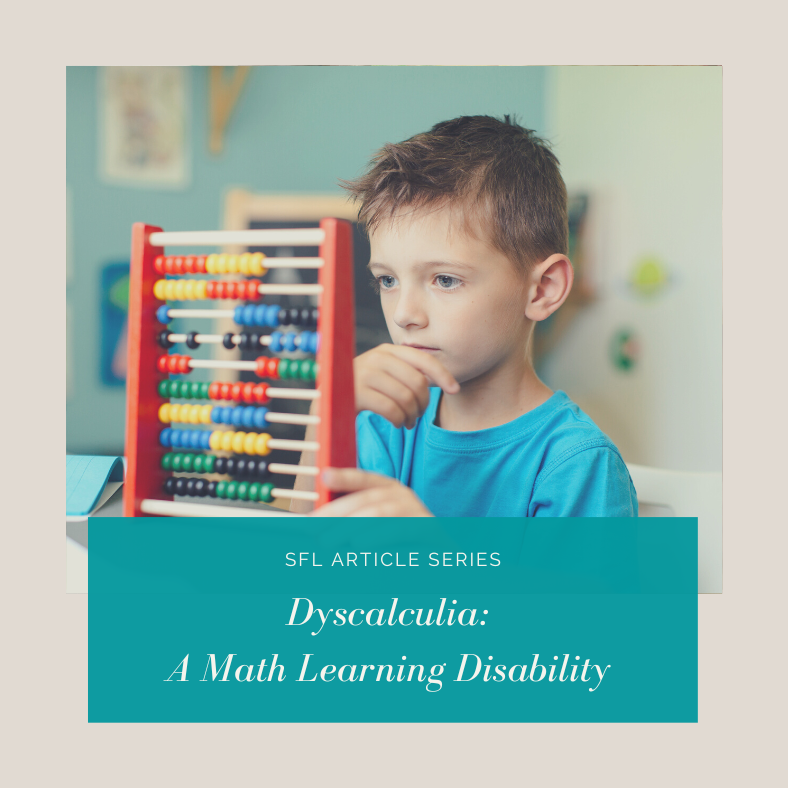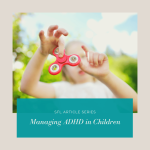No products in the cart.

Dyscalculia can be one possible explanation for your child’s math struggles. As a parent, it can be tough to witness your child grappling with math. You might wonder if your child just doesn’t like math and is being defiant or if there’s something deeper going on.
Dyscalculia, a specific learning disability, hinders a child’s ability to comprehend and manipulate numbers. As a Clinician and educator specializing in math and science, I’ve witnessed firsthand the importance of addressing this condition to ensure our children thrive in their academic journey. Let’s delve into some commonly asked questions from parents.
What is Dyscalculia?
It is a lifelong condition that affects around 5-7% of the general population and can impede a child’s counting skills, mental arithmetic, and grasp of mathematical concepts. It’s important to note that this specific learning disability has no correlation with intelligence; it’s purely a neurological issue.
What is the difference between dyscalculia and math anxiety?
Math anxiety if often described as a negative emotional reaction to math that can be debilitating. Children with math anxiety often doubt their own abilities, even though they understand the material. Though the outward signs may appear similar, dyscalculia and math anxiety are different. For example, doing math with dyscalculia is like a figure skater with an injury. Doing math with math anxiety is like a skilled skater who worries that the ice will crack below her.
What are the Signs of Dyscalculia?
Symptoms vary from child to child, sometimes manifesting more prominently than others. Some common indicators include:
Struggling with basic arithmetic, like addition and subtraction
Difficulty counting backward
Trouble recognizing numbers and symbols
Challenges with time-telling and handling money
Weak memory retention for mathematical concepts
Moreover, children with this math learning disability may find tasks involving the application of mathematical concepts, such as measuring and estimating, particularly daunting. They may also encounter difficulties in understanding number placement and sequencing
How is dyscalculia diagnosed?
It can be diagnosed through educational and clinical assessments. A comprehensive evaluation is often necessary to determine if a child has this specific learning disability. Learn more about the different types of educational assessments and evaluations.
Is there a cure?
Though there is no cure, with appropriate support, students can develop strategies to overcome the challenges associated with this learning disability. A comprehensive evaluation can be incredibly insightful and can help you understand your child’s weaknesses but also their strengths. It can also help inform the work of an educational therapist or educator.
Can dyscalculia be mistaken for other disabilities?
It is commonly misunderstood as other learning disabilities, such as ADHD, dyslexia, or challenges with executive functioning. Obtaining a comprehensive evaluation is crucial to rule out other learning disabilities.
What kind of support does a child with dyscalculia need?
Children with dyscalculia require specialized instruction and support tailored to their individual needs. This may involve accommodations, such as extra time for tests and homework, as well as specialized math instruction.
Can children with dyscalculia pursue higher education?
Absolutely! With appropriate support, children with dyscalculia can attend college and achieve academic success. Many colleges offer support services and accommodations for students with learning disabilities.
At Strategies for Learning, we are committed to ensuring that every child receives the personalized support necessary to flourish in their academic endeavors. Let’s raise awareness about dyscalculia and unlock the true potential of every child.
Written by Susan Ardila, M.Ed Math Education K-12
Related Articles
Looking for Academic Support and other Educational Services?
You can schedule a free initial consultation to learn more about our services. We will listen to your concerns, answer any questions, learn about the student’s needs, and help guide you through our new student intake process.






